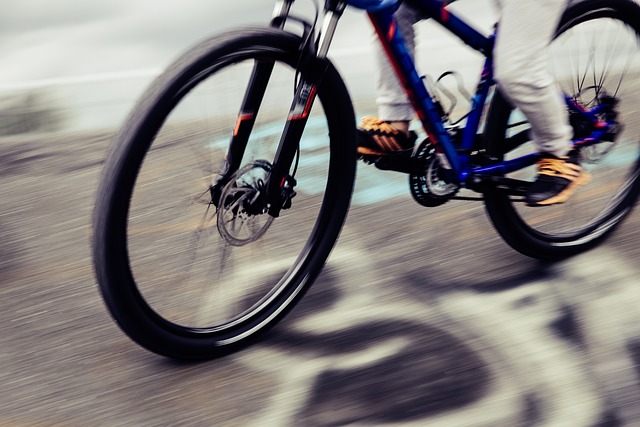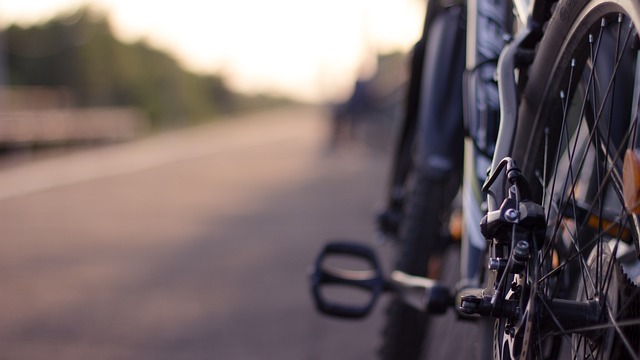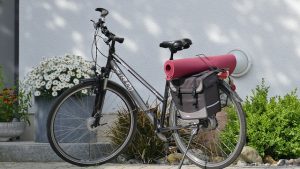When you apply the brakes, a loud squealing sound breaks the peace as you are leisurely traveling down a country road, taking in the scenery, peace, and solitude.
We’ve all been there: squeaky brakes are among the most infuriating bike noises. However, noisy brakes can result in decreased braking performance in addition to the squeal, which is a problem.
Table of Contents
What Causes Squeaky Brakes?
Improper Brake Alignment
Your bike’s brakes may occasionally not be installed properly in relation to the rim brakes. Alternately, over time from normal bike wear and tear, the brake pad may become out of alignment, resulting in squeaky brakes. A misaligned rotor and caliper may also be the cause of noisy disc brakes.
Contamination
To keep your brakes smooth, oil them frequently. Well, occasionally, this brake fluid causes contamination in the disc pads, rim brakes, and even occasionally in the brake pads, particularly in disc brakes. They become contaminated, and debris even accumulates on them. Squeaky brakes are the result of everything mentioned. This may also cause the squeaky sound if your brake blocks are worn down or if the braking surfaces are not aligned properly. Other causes of contamination include using aerosol too closely to the braking surfaces or touching the rim with greasy fingers.

How to Fix Squeaky Bike Brake?
Bike Alignment Fix
So, if a new bike has squeaky brakes, the brake pads are probably not properly aligned with the rim. Therefore, by loosening the caliper bolts, you must remove the entire padding from the braking surface and then replace it. Just be sure to keep the front part closer to the rim brakes and the back part farther away from the rim brakes.
Additionally, make sure that neither the brake pad nor the rim brake touches the tire. After finishing this setting, all that remains is to tighten the bolts on the braking surface. Now that’s where it gets tricky because as you tighten them, the brake pad will probably start to rotate along with the bolts, and you want to avoid that. Therefore, when screwing the bolts, be sure to hold the brake pads firmly in place.
Give your brakes a once-over once the installation is complete. If the squeaky bike brakes persist, further pad adjustments will solve the problem.
If you already know there isn’t a problem with the installation of the pads, the problem is that the pads are worn out. In that case, all you need to do to stop experiencing brake squeaks is swap out the worn brake pads for new ones.
Contamination Fix
Eliminating the contamination by cleaning your brakes with some rubbing alcohol is a simple fix for noisy bike brakes. Simply use a clean cloth that has been dampened with alcohol to wipe the disc brakes and rim brakes. The oil stain on the cloth will be visible. Brake levers won’t squeak any longer if you squeeze them after you’re satisfied with how thoroughly they’ve been cleaned.
However, the subject there was merely oil contamination. Your brake pads will undoubtedly still squeak and perform poorly if there is debris on them. Because of this, you must get rid of the debris, which is harder than simply cleaning them with rubbing alcohol.
To remove the top layer in this situation, remove them from your bike and rub them with sandpaper. Using a brake cleaner, you basically need to clean the wheel rim and brake pad of all debris. Rubber alcohol is another option.
The use of sandpaper, rubbing, cleaning, or similar methods won’t be very effective, though, if there has already been a lot of debris accumulated there. The pads will eventually become completely worn out. Therefore, it would be better to just go ahead and replace the pads if you can see that there is too much debris to scrape and clean.
Additionally, check to see that the brake blocks are both clean and in good condition. Additionally, make sure the bolts holding the brake blocks to the caliper are properly tightened. For cleaning the brake blocks, you can employ a non-oil-based degreaser.
Reasons to Fix Squeaky Bike Brakes
Your brakes may squeak lightly or loudly enough to wake your neighbors, depending on the severity of the noise. No matter where you’re riding, anything more than a minor squeak needs to be fixed because it sounds awful and indicates that you don’t properly maintain your bike. Furthermore, if left unattended, the pads will deteriorate unevenly, requiring replacement before they otherwise would. Furthermore, squeaky brakes indicate that stopping power is probably being lost. You shouldn’t have noisy brakes whether you’re competing in the Wednesday Night World Championships or just riding your commuter bike around town. Given that you know how to fix them, there is no longer any justification. Get them quiet, and you can quickly and safely come to a stop.
Rim Brakes Vs Disc Brakes: What’s the Difference?
Rim Brakes
Check the rims first to make sure there isn’t any buildup of dirt or oil; if there is, use degreaser to scrub them thoroughly. Contamination is a major contributor to squeaky brakes. Check to see if there are any grit or dirt specks on the brake blocks themselves after that.
Make sure the brake blocks are not worn out and that they are wearing down evenly, as this could indicate that the brakes are not installed correctly.
After completing this cleaning regimen, make sure that all of the bolts holding the brake blocks to the caliper and the caliper to the frame are tightly tightened. Loose bolts can cause brake noise.
- Common problems with rim brakes
Even after all that cleaning and tightening, is there still a squeal? Then, it’s possible that your brakes are not properly adjusted. Check this by applying the brake and observing how the rim and block surfaces connect; if necessary, loosen the mounting bolts and realign the blocks to ensure a precise fit. The wheel bearings’ slight play can also cause noisy brakes, in addition to the factors mentioned above.
Disc Brakes
Similar to rim brakes, contamination is the main reason why disc brakes squeak. If spray lubricants are used on a bicycle with disc brakes and some of them end up on the rotors or pads, this could happen. If you use such products, you should use extreme caution.
Sanding down the brake pads and using an oil-free degreaser to keep your rims or rotors clean will both help to lessen brake squeal. To keep your disc brakes clean and free of contaminants, you can purchase specialized cleaners. However, if your disc brakes’ disc pads have become contaminated, you will need to remove them from the bike entirely before you can sandpaper them down.
If that doesn’t work, you might need to purchase new pads.
What’s the best way to clean your bike’s disc brakes? / Flynn Tesoriero/Unsplash, image
- How are disc brakes installed on a bicycle?
Rim brakes and disc brakes require different setup procedures, and improper disc pad setup can significantly reduce performance. The best way to bed in pads is to travel at a reasonable speed and apply the brakes firmly; repeat this several times to make sure the discs are well-bedded in.
If none of the aforementioned solutions work, it might be because the caliper and rotor are not perfectly aligned. The positioning of the caliper and disc rotor can be adjusted by eye, and disc rotors can easily bend. However, they can be straightened with an adjustable spanner.
The aforementioned steps should get rid of the annoying noise, but if they don’t, bring your bike to your neighborhood bike shop and ask them to fix the squeal.
Read about How To Fix A Flat Bike Tire?
Summing Up!
Here are the main causes of squeaky brakes as well as their fixes. We hope that solved your issue and put an end to your brakes squeaking. Now go ride your bike outside.
As a result, go ahead and identify the cause of the noisy brakes and solve it with a straightforward fix.



